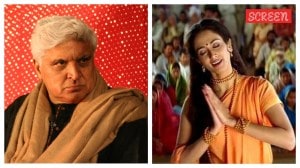He Really Was Evil
...

| Koba the Dread: Laughter and the Twenty Million By Martin Amis Jonathan Cape Price: pound;10.25 |
The English have a long history of literary personages indulging their political proclivities through their writings, in defence or defiance of the prevailing order 8212; always with an almost mystical approach to the question of liberty. The list includes the likes of John Donne, Percy Shelley, William Wordsworth, Rudyard Kipling, Oscar Wilde, Rupert Brooke, reaching its apogee in George Orwell. It has a new, unlikely, but highly welcome entrant 8212; Martin Amis.
Amis is, of course, one of the most celebrated novelists and essayists of his generation, taking a studied, jaundiced swipe at the failures of his fellow human beings, and at the same time commiserating over their vulnerabilities. How does one describe Koba? It is part-memoir, part-history. And a broadside against those who refused 8212; and continue to refuse 8212; to acknowledge the hideous nature of Stalin and the Soviet state, including a one-time friend, the Left-leaning literary virtuoso Christopher Hitchens, well-known for his hatchet job on Mother Teresa.
Koba the Dread is the opposite of Stalin the Great. Koba was the nickname of Joseph Dzhugashavili. Stalin 8212; Man of Steel 8212; is the name he took. Through a masterly use of historical data derived largely from the Sovietlogist Robert Conquest Amis systemically rips apart the Stalin myth, for perhaps the millionth time. He brings out not only the lies and terror that Stalin perpetrated, but how he broke the spirit of the Russian people. We read again and again how ordinary people became informers, how Stalin sent to the concentration camps the relatives of even those who stood around him on the podium in Red Square.
But the subtitle is Laughter and the Twenty Million. The 20 million are those died under Stalin. Laughter is a metaphor for the inability of those who retained faith in Stalin even after the truth became known, and who, strangely, fight a rearguard action on his behalf even today. Thus, he systematically savages Hitchens. Take a look at the controlled invective of this assault on revisionist historian J. Arch Getty: 8220;If Getty goes on revising at his current rate, he will eventually be telling us that only two people died in the Great Terror, and that one very rich peasant was slightly hurt during collectivization.8221;
Clearly, Amis is no bleeding-heart liberal, ready to go soft on the Left. Nor is he a hard-hearted liberal, putting forth specious arguments that a dictator is fine if he is on our side. Amis is a moral liberal. For him, the use of power and its effects cannot be divorced. He does not agree with Stalin that one death is a tragedy, the death of a million a mere statistic. To Amis, people matter. You can8217;t gut their spirit, take their lives and livelihood, and shrug it was necessary in order to raise the country to dizzying heights.
A few years ago some described Amis8217;s Experience as the first masterpiece of autobiography in the new century. With Koba, he has raised himself over the heads and shoulders of his contemporaries. He is now to be counted among the likes of Arthur Koestler, Alexander Solzhenitsyn and Conor Cruise O8217;Brien 8212; a serial detonator of morality bombs in our mental landscape, forcing us to confront the uncomfortable. More ink to his polemical pen.
- 01
- 02
- 03
- 04
- 05































